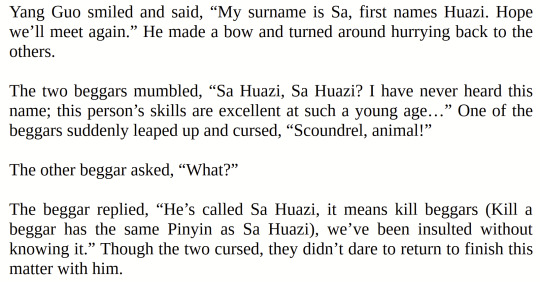#jin yong
Text

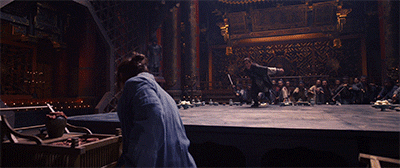
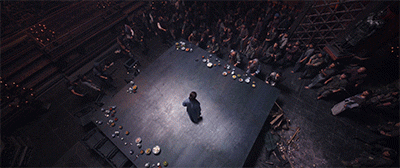
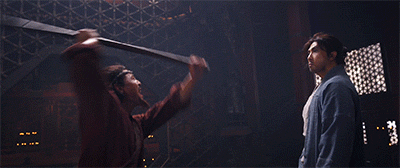

Donnie Yen - Sakra (2023)
#hong kong action#hong kong cinema#donnie yen#kenji tanigaki#sakra#jin yong#wuxia#wuxia novels#demi-gods and semi-devils#天龍八部#天龍八部之喬峯傳#甄子丹
89 notes
·
View notes
Text
MXTX Interview with Risa Wataya for Subaru Magazine P.7
Which creative works influence you:
Risa: Please tell us which creative works influence you.
Moxiang: Professor Jin Yong's wuxia novels (*)! Professor Jin Yong is my number one teacher in the craft of writing. His skill in crafting wuxia stories, his artistic palate, the sheer intellectual depth and philosophical complexity of his stories and characters. Professor Jin Yong's wuxia novels have a profound and immeasurable influence on all modern Asian creative professionals.
(*: the legendary late professor Jin Yong. He's not as well-known in English-speaking spheres due to the complexity of his works being very difficult to translate to languages outside of the Sino-Tibetan language family. But in Asia, he's a literature titan. He's comparable to Tolkien in that he laid the foundation and codified the tropes of wuxia as a modern genre (alongside Gu Long and Liang Yusheng) and brought about the first and subsequent wuxia waves, and that there's also university courses and entire research field on Jin-Yong-ology. However, he's a much more prolific writer, having produced 15 wuxia series, among which 14 are of comparable length or longer than the Lord of the Rings and The Hobbit combined.
It would be no lie to say there's not a single creative professional in Asia that is not influenced by Jin Yong in some way, shape, or form.
One of Jin Yong's trademarks is the overwhelming, often obsessive, sometimes destructive love that his characters exhibit. There's not one work of his that is not threaded through with larger-than-life romance, not just among the protagonists, but also among the villain characters. The trend of modern Chinese literature, especially wuxia and xianxia, to portray larger-than-life romance can be traced directly to Jin Yong's influence.
Interestingly, he's also credited as having accidentally created the proto icon of danmei as a genre.
I'm sorry. I'm so excited I want to cry. Professor Jin Yong is also my first teacher in the craft of writing. It turns out we all step in the footsteps of the giant, huh, Moxiang?)
I also watch a lot of 90s Hongkong movies. Do you know "Shaolin Soccer'?
Risa: I do know!
Moxiang: Stephen Chow's comedy movies, Tsui Hark's wuxia, and fantasy horror movies. Lam Ching-ying's walking corpse movies. I love all of these.
Risa: That's closer to jiangshi (*) than modern zombies.
(*: a type of Chinese walking corpse. The name literally translates to stiff corpse. Jiangshi is typically translated into Chinese hopping vampire in English due to their similarity to Western vampires. They are the dead that comes back to life. They suck yang energy from living people. They fear the smell of garlic. Etc... Jiangshi has real-life basis in an extinct profession in China: the corpse walker, i.e., people who made a living out of 'walking' corpses back to their home provinces in times of war and chaos. Corpse walkers are mentioned in Liao Yiwu's historical book 'The Corpse Walker')
Moxiang: That's right. That's right. A hopping jiangshi. I watch a lot of such movies. Some movies are from before I was born, such as 'A Chinese Ghost Story' and 'Sword Man' (*). I have watched them more than ten times! If I meet someone who has never watched those movies before, I will enthusiastically drag them along while saying, "Let's watch them together!" My novel bears obvious and immense influence from these movies... For example, the funny scenes in my story are very close to the atmosphere of comedy scenes from Hongkong cinema. Or the walking corpses in my story. My inspiration came from these undead corpses. In the novel, I mentioned using glutinous rice as a cure for corpse powder. This knowledge came from the movie "Professor Jiangshi" (named 'Mr. Vampire' in English in the Wikipedia).
(*: Both of these movies are Tsui Hark's movies and are counted among the top 100 best movies of Asian cinema. They are known for their fantasy elements, eroticism, and homoeroticism. These movies came from a time where Asian cinema was pushing boundaries left, right, and center. Swordsman and its spin-off were adapted from Professor Jin Yong's The Smiling Proud Wander. The very same work in which he accidentally created the proto-icon of danmei. I wrote an essay about this as part of danmei history last year. I will make a separate post after this.)
Risa: To be honest, when I reached the part where glutinous rice was used to cure corpse powder in 'Mo Dao Zu Shi,' I was moved.
Moxiang: Ah? A Japanese author saw the glutinous rice scene in my novel and linked it to jiangshi movies... That is so surprising!
Risa: When I was young, I watched a lot of jiangshi movies. I love them!
Moxiang: I feel increasingly close to Ms. Risa now. As for other foreign literature, Emily Bronte's 'Wuthering Heights' greatly influences me. When I read it during elementary school, I was shaking from excitement. Perhaps because of the influence of Wuthering Heights, that whenever I see complex, intertwining love-hate situations, I feel such joy and nostalgia in my heart.
There's also my favorite childhood mangaka Rumiko Takahashi! This kind of light-hearted, rowdy atmosphere where characters argue and rib each other is so cute! I especially like 'Ranma 1/2'. I think it's the best comedy manga. Other than that, 'Inuyasha' can only be described by the word romantic. Romantic! To this day, Kikyo is still a goddess in my heart.
Risa: Although 'Ranma 1/2' is a work that features China in it, what do Chinese people think about it?
Moxiang: The first thought that comes to my head is 'charming!' After that is probably fond familiarity. This work (Ranma 1/2) features many Chinese elements. I feel that the distance between our hearts is lessened.
To be Continued (The next part will be the last)
Translator: Sythe / NPD Khanh
308 notes
·
View notes
Note
Hi! This is inappropriatewenning, by the way. You mentioned that you could point people towards some fan translations of Jin Yong novels? I would appreciate that very much, if it's not a hassle! Thank you <3
I'm about to go on vacation, so I don't have time to expound in depth at the major translations that I'm really fond of, BUT I would say whiteskwirl's breakdown of which translations have occurred where and their website on Wuxia remains one of the best ones out there nowadays.
Edit: also it's absolutely never a hassle to send me asks/etc I love asks. I'm like, the plant version of a slightly demented possum who always loves to scream about stuff I love.
64 notes
·
View notes
Text

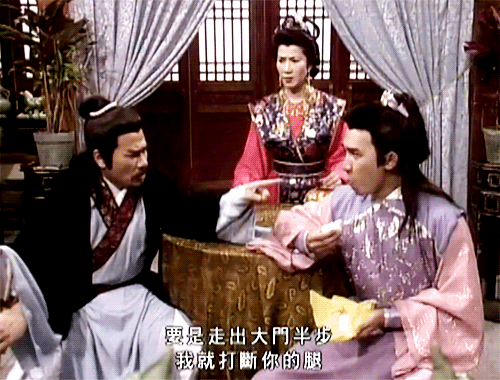
"If you walk even a step outside, I'll break your legs!"
10 notes
·
View notes
Text
Word of Honor: Classic Gu Long’s Elements in Wen Kexing
Any wuxia fan must know Word of Honor is a derivative work in this genre, and I even drew some parallelism from Jin Yong’s works, especially The Smiling, Proud Wanderer: the plot, the characterization, and even a little bit of the romance (though, of course, not entirely). But I recently sort of realized (quite all of a sudden) that there are also some classic Gu Long’s elements, particularly in Wen Kexing. I found that his character design (not necessarily his personality, though) was modeled after Chu Liuxiang in Gu Long’s kind-of-detective series and Jiang Xiaoyu/Xiaoyu’er in his Legendary Siblings.
Anybody knows Chu Liuxiang must remember that the elegant hero wields a hand fan, has (though, in Wen Kexing’s case, not actually lives in) a huge ship, has three maids and one of them seems to have a crush on him, also, and this is important, has a best friend who loves drinking wine (although here Zhou Zishu is not exactly his best friend, if you just know what I mean).

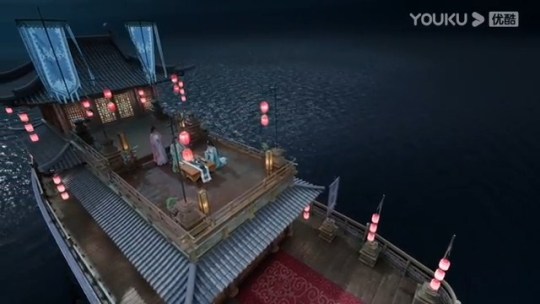
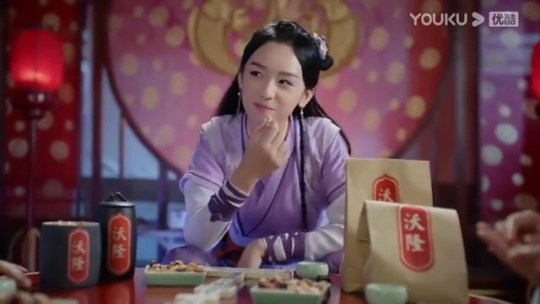
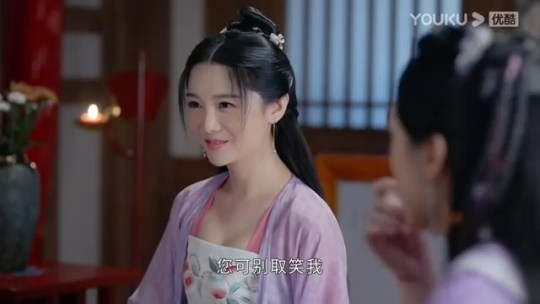
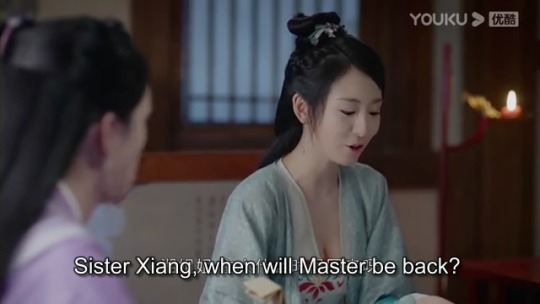

Wen Kexing’s upbringing―deliberately written so, me thinks―is so similar to that of Jiang Xiaoyu/Xiaoyu’er: they both lose their parents, are taken into a valley full of evil people, and raised/surrounded by them until they both reach adulthood. So here I firmly believe that the Ghost Valley and the Ten Great Ghosts were modeled after the Villains’ Valley and the Ten Great Villains, respectively, in Gu Long’s Legendary Siblings.
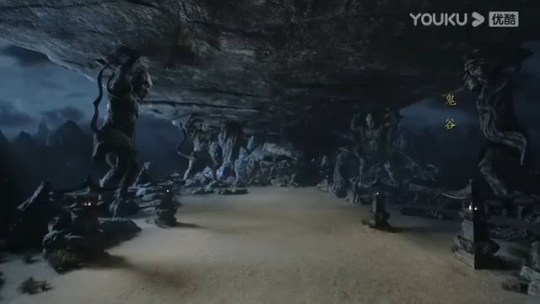

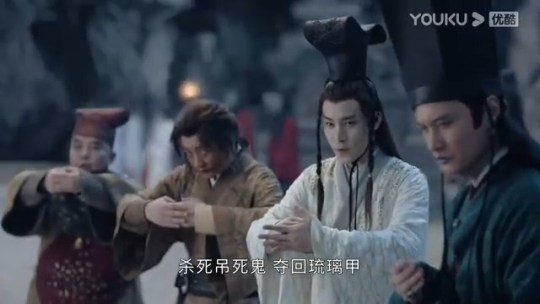

These findings are quite interesting, and I suspect there are more and more in Word of Honor similarities to or prototypes of wuxia classics, either it’s by Jin Yong or Gu Long, or any other classic wuxia author, for that matter.
19 notes
·
View notes
Photo
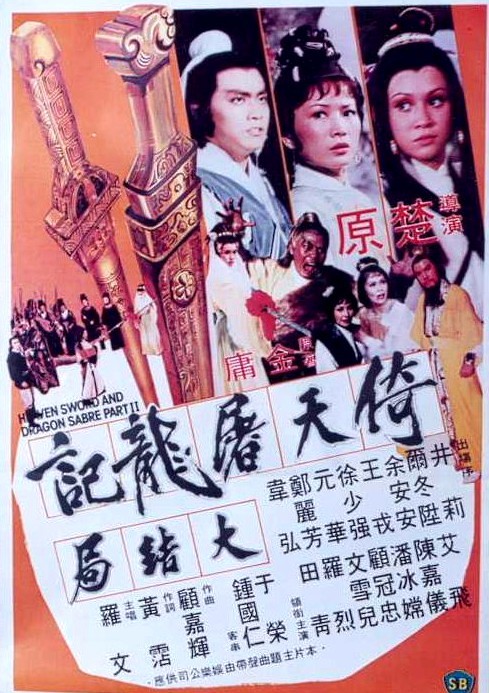

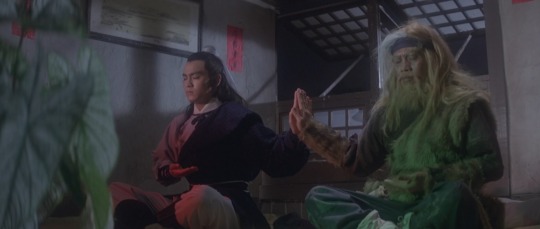



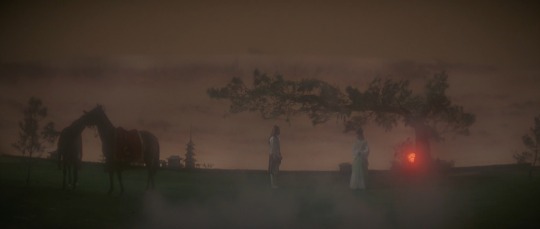



Heaven Sword and Dragon Sabre 2 (1978)
#Heaven Sword and Dragon Sabre 2#shaw brothers#chor yuen#jin yong#derek yee#wuxia#kung fu movies#hong kong movies#martial arts movies#film#70s movies
15 notes
·
View notes
Text



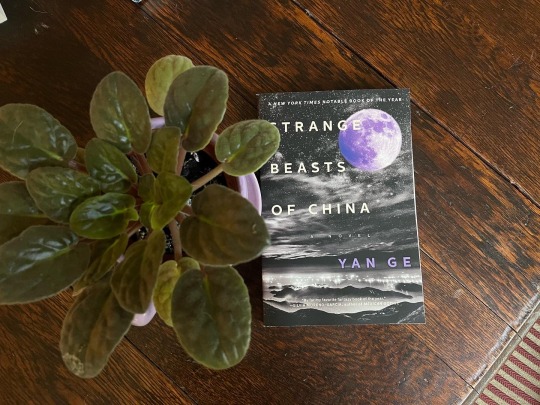

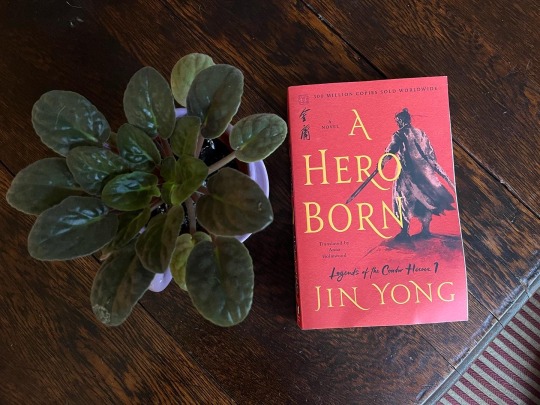
✨ Books I’m Looking Forward To Reading ✨
📚 World of Wonders: In Praise of Fireflies, Whale Sharks, and Other Astonishments by Aimee Nezhukumatahil
📚 The Wedding Party by Liu Xinwu (trans. Jeremy Tiang)
📚 Tooth and Claw by Jo Walton
📚 Strange Beasts of China by Yan Ge (trans. Jeremy Tiang)
📚 Under the Whispering Door by TJ Klune
📚 A Hero Born by Jin Yong (trans. Anna Holmwood)
#godzilla reads#reading#reads#books#world of wonders#aimee nezhukumatathil#the wedding party#Liu Xinwu#tooth and claw#jo walton#strange beasts of China#Yan Ge#under the whispering door#tj klune#a hero born#jin yong#legends of the condor heroes#booklr#bookworm#bookish#booklover#book blog#book blurb#bibliophile#booklife#booknerd#book aesthetic
83 notes
·
View notes
Photo

Sensationalism and violent high-water mark Thumb body', the more disturbing bizarre melodrama you see
#Kim Young-kwang#Netflix#Kang Haelim#Jung Ji-woo#Microsoft Developer Network#Dating Naked#Murder#Blow-Up#Jin Yong
16 notes
·
View notes
Text
Star Wars’ generational epic about the drama (and trauma) across 3 generations of the Skywalkers reminds me of the generational adventures of Louis Cha’s Condor Heroes.
In both stories, you have an evil father who “dies” before his son is born. (I put dies in air quotes because Anakin didn’t really die, but Obi Wan’s Darth Vader will have you believe that he did.) The mother dies shortly as well.
The son grows up to be naive and optimistic, the exact opposite of his father (but takes after his mother), and is trained by skilled masters who once knew his father (although the masters in the Condor Heroes were more Yang Kang’s enemies than allies).
The son grows up to be skilled and righteous, but that’s pretty much were the similarities between Luke Skywalker and Yang Guo end.
Sure, it’s a common backstory for a hero, but I find the juxtaposition between a father and son who have never met each other to be interesting. The son has no idea who he father was like as a person, and yet people have prejudices and expectations of the son based on what they knew of his father, and so the son has to carve out his own identity while trying to protect and better understand who his father was.
#star wars#anakin#luke skywalker#skywalker family#louis cha#jin yong#condor heroes#legend of the condor heroes#romance of the condor heroes#yang guo#cdrama#anakin skywalker#darth vader#obi wan#father son#intergenerational trauma#narrative#plot#stories#parallels#literature#classics#hero's journey
14 notes
·
View notes
Text
The first four episodes of the Side Story of Fox Volant are AWESOME. The talented child actor, the acting across the board, a very cool Lin Yushen (can't expect less -- I was a card carrying member of Yang Buhui Stepmom Club), wholesome fighting scenes esp on Ep. 3 and just an all round strong vibe of old school wuxia with great cinematography and camera work. Show may go downward later, but I'm a wuxia apologist.
14 notes
·
View notes
Photo

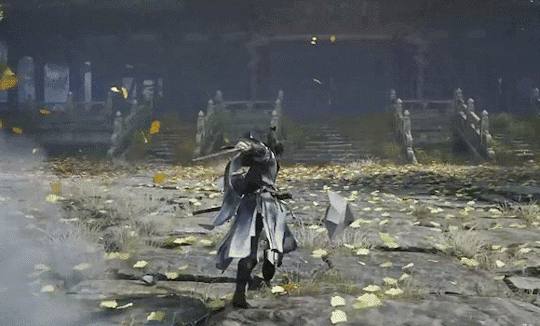
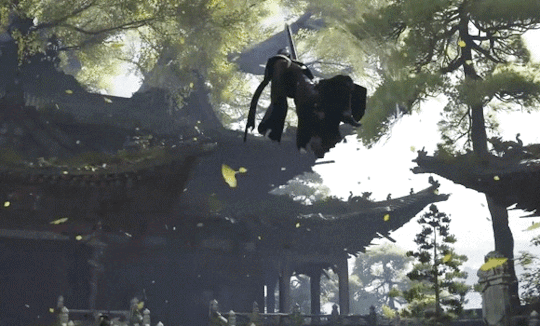



Code: To Jing Yong (TBA)
9 notes
·
View notes
Text
Legend of the Condor Heroes — Heroes?
I’m doing a re-read (okay, re-listen) to the 4-book Legend of the Condor Heroes series by Jin Yong to refresh my memory before the next book, A Past Unearthed, book 1 of the Return of the Condor Heroes comes out and while it’s still holding my attention, there are a number of things that really stand out for me, but not in a good way.
First, and perhaps foremost, with so many of the so-called heroes of the Wulin, it seems that the first ‘solution’ to dealing with members of other sects is to consider killing them, or make every effort to do just that. There are instances in which powerful experts readily take to the idea that they should kill someone before they reveal a weakness, or to obtain something the other possesses.
Greed plays a pivotal role in many of the encounters. The 6th Prince of the Jin covets another’s wife and sets in motion a plan that will allow him to get her husband killed. The 9 Yin Manual is the trigger for many attempts to kill someone — Guo Jing nearly loses his life just because The Hairy Urchin thinks it will be fun to ‘tease’ Apothecary Huang about what the boy knows (does emphatically not know), and let’s not even mention Viper Ouyang’s attempts. There’s barely an honorable character in these kung fu masters.
I’m not too keen on how Huang Rong (Lotus Huang) is portrayed, especially as her first actions upon meeting the veritable country bumpkin Guo Jing is to practically bankrupt him by demanding lavish dishes when he pities the poor beggar boy. (And proceeds to waste half because they’re cold.) There are many times when her attitudes towards other people are much closer to her father’s ’Break Legs, Cut Tongues, Imprison Till I Get What I Want’ approach and seem highly incompatible with Guo Jing’s pure hearted ways of dealing with issues. She may be the smarter half that he needs to get out of situations, but honestly, I really don’t like her half the time.
As for Guo Jing, his doggedness, his loyalty, and honesty are all good for the hero of the piece, but his general thickheadedness through much of the 4 books can be a little bit daunting. Good thing he meets up with the Beggar Chief, who’s one of the few really decent men in the story.
Two other characters who I despise, one we’re supposed to, the other maybe more of a ‘picaresque’ type we’re supposed to find amusing (?) are Ouyang Ke (Gallant Ouyang) who’s a serial sex offender in his 40s with a serious and persistent lech for 15-year-old Lotus. Ick. Boulders should fall on his head! And the second is the Hairy Urchin, Zhou Botong; his childish behaviors and ‘pranks’ often have disastrous results. He’s more like a bad device used so Guo Jing can pick up some helpful kung fu techniques. Can we attribute it to his long imprisonment on Peach Blossom Island?
The point of this long rant is, I suppose, to puzzle out whether these character flaws are a reflection of the times in which the novel was written, or characteristics of the genre, or characterizations that would be interesting to the original audience. Are there cultural aspects that make them more appealing? I’m curious to see where the next books take the series.
1 note
·
View note
Note
hey tav, quick question! i just read your jin yong post and i'm new to his novels so. i was wondering in which one does the. uh. shizunfucking occur 👀 asking for a friend, as they say. thanks in advance! <3
HELLO FRIEND SO GLAD YOU ASKED.
The Shizunfucking (okay I have to clarify, the age difference here is somewhere between like, 3-7 years, SHIZUN is not very much older than her disciple here.) occurs in ROCH, Return of the Condor Heroes, which is the second book in the Condor Trilogy and the direct sequel to LOCH (Legend of the Condor Heroes) following Yang Guo (the disciple in question).
I won't spoil too much of the plot but like, this is where we get the stereotypical extremely beautiful ice cold dressed in white shizun and the besotted cheeky disciple from.
Also they have an ice bed. That she makes him sleep on. And at one point they have to practice martial arts together naked or it wouldn't work and they'd die. And they got married with a dead woman's wedding clothes and also she tells him that since she promised to care for him forever if she feels like she's dying she'll kill him and then put him in the same coffin as her and shut it so they'll die together etc etc.
And also at one point she pitches herself off a cliff. And they get horribly poisoned by the "IF YOU FUCK (or even just get a hornt boner tbh) YOU'LL DIE" poison. (do you see some common shizunfucker tropes here, bc MAN OH MAN.) btw this book was written in 1959-1961. They just let people put this in the NEWSPAPER in INSTALLMENTS like this.
And uh. yeah. Okay a lot happens in this book and it's not really ABOUT Shizunfucking but it's also not not about Shizunfucking. Like all Jin Yong books, this is a very book.
Also dw I've spoiled nothing about the plot.
iirc there is not an official translation and the ROCH adaptation everyone yells about is the 95 version which I can only find on youtube in Cantonese but it DOES have Carman Lee (who plays Lan Yi in CQL) as Xiao Longnv, which is a huge plus. I don't thiiiink you necessarily need to know what a LOCH is to read/watch ROCH but also I feel like it would make sense to watch/read LOCH first?
Feel free to send me follow-up questions!
8 notes
·
View notes
Text
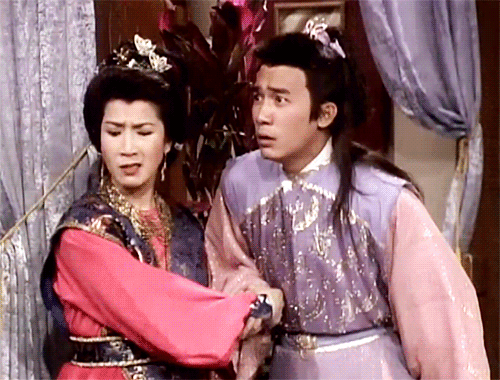
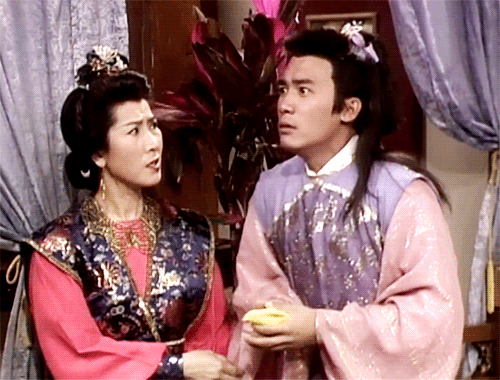
been thinking about gifing 侠客行 for awhile hehe.
tbt to his tvb days
13 notes
·
View notes
Text
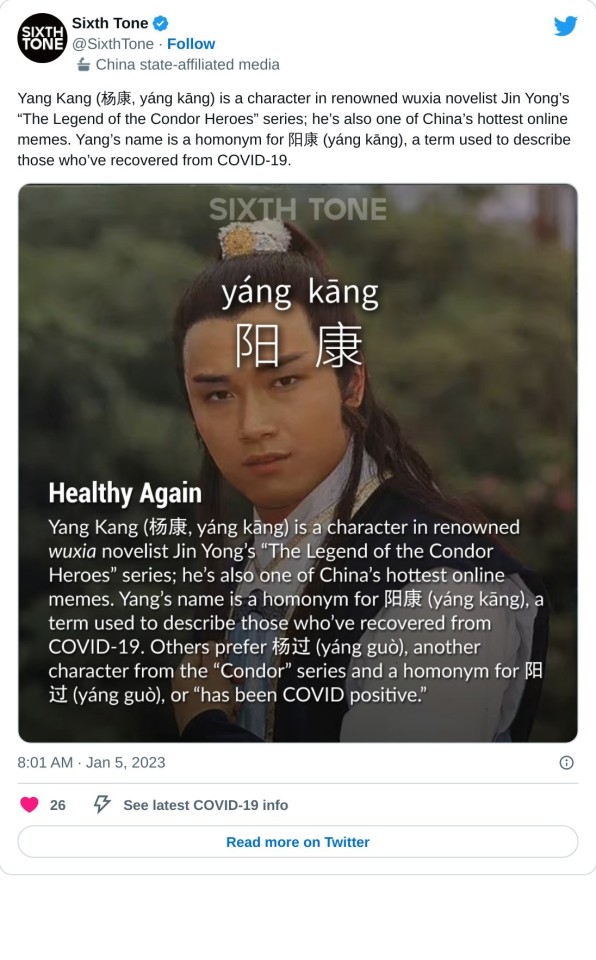
what Yang Kang implies... 😅😂🤣
3 notes
·
View notes



